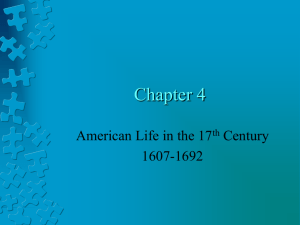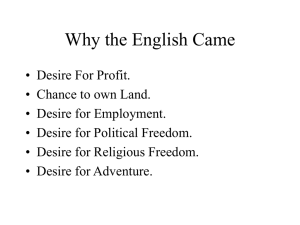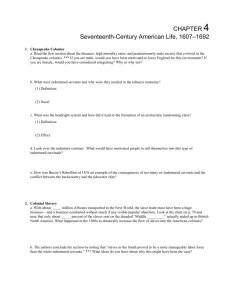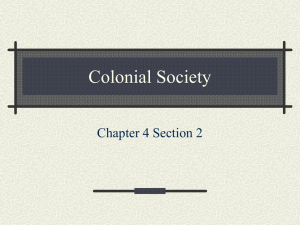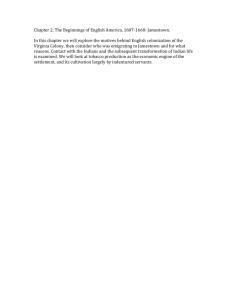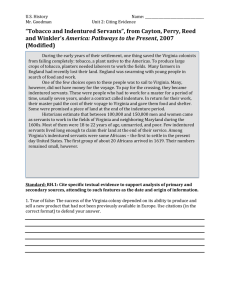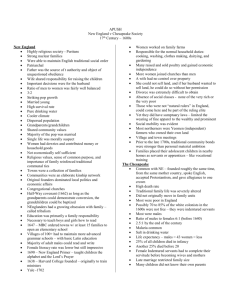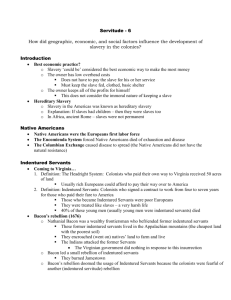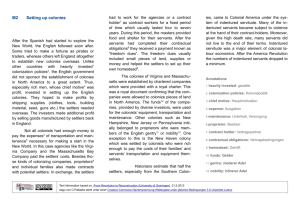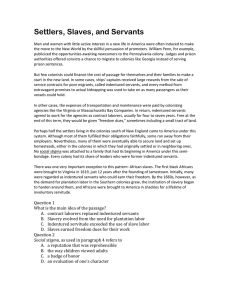Study guide power point
advertisement
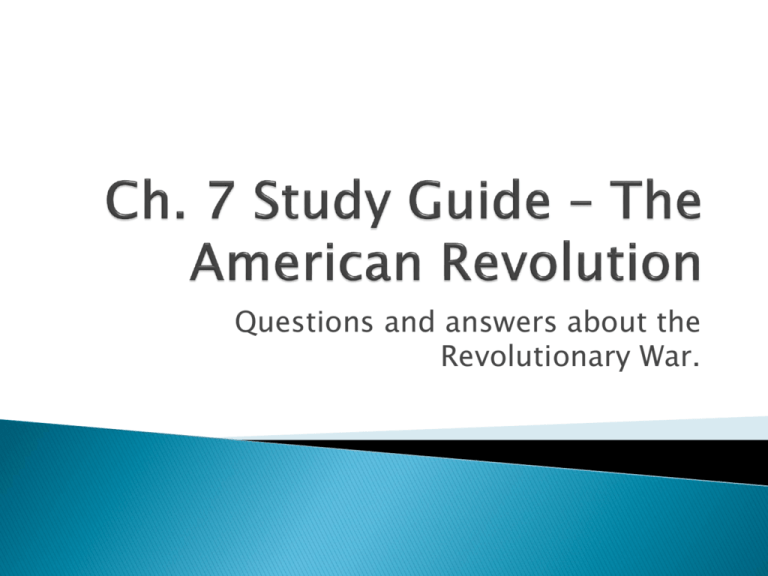
Questions and answers about the Revolutionary War. The were poor, indentured servants, immigrants, and landless farmers and field hands. They were promised land, money, and freedom (indentured servants and slaves) The war was instigated by the wealthy and fought by the poor. Patriot militias would not have been possible without popular support. This support extended beyond the militias into families, merchants, farmers, and politicians. People provided food, supplies, and shelter for those willing to fight the British As Catholics they had been persecuted by the dominant religious groups in the colonies. They lost their civil liberties and their property. The British government officials tried to protect them from persecution Felt passed over for his service to the Revolution He became an informant for British General Clinton in NYC. He plotted to turn over West Point to the British. After his plot was uncovered he fled and became a General in the British army and led raids against American targets. Never captured, he retired to England after the war and died in 1801 Trenton - The famous crossing of the Delaware on Dec. 25 1776 to defeat the Hessians. Princeton – Jan. 3, 1777 – defeated a small British force Small but significant victories. They gave the Americans a moral boost and changed Washington’s strategy from offensive to defensive in nature. The October 1777 defeat of the British at Saratoga led the English to consider peace negotiations with America. France did not want favorable relations or reconciliation between the colonists and the British. Extending the war would ultimately weaken the British. The Colonists victory was a disaster for the Native Americans While they (Native Americans) didn’t feel they had actually lost a conflict, in reality the American people would now concentrate on expansion forcing Native Americans from their land. These were the people who remained loyal to the British. Many were in the South. Lands would no longer be confiscated, and states would be persuaded to compensate them. This came to be known as the Newburgh Address. By denouncing force by the military he set the precedent for military subordination to a civilian government How did the flood of paper currency affect the American Economy in the aftermath of the Revolution? Paper money was printed without regard to value A lack of British goods and excess paper money led to runaway inflation. This led to diminished confidence in the young government.
